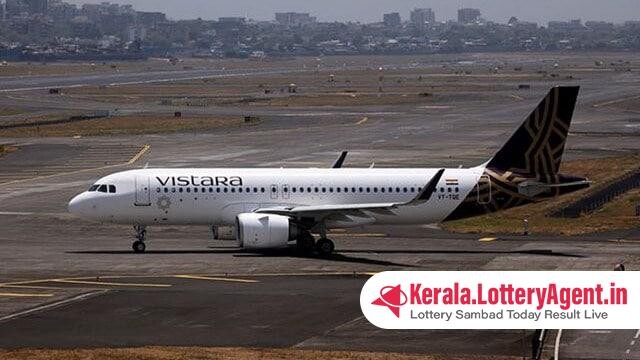
In a progressive move to stabilize operations, Vistara, a full-service airline and a joint venture between Tata Sons and Singapore Airlines, has reported that over 98% of its pilots have agreed to the company’s new contractual terms that come with a revised pay structure. The Airline’s Chief Executive Officer, Vinod Kannan, in his latest briefing, insisted that concerns raised by the remaining pilots, who have yet to sign the new agreements, are being actively addressed by the airline.
Despite rumors of increasing pilot exits sparked by the introduction of the new pay structure, Mr. Kannan pointed out that there has been no “visible spike in attrition”. He stated on Saturday, “With reference to concerns being raised regarding the new pay structure of our pilots, we would like to clarify that over 98 per cent of pilots have signed the new contract. However, this has not caused any visible spike in attrition amongst pilots.”
The airline, estimated to comprise roughly a thousand aviators, encountered significant aspects of disruption earlier this week – a flotilla of cancellations and delays across its network, primarily due to what was described as the non-availability of crew. Reports inferred that the turbulence in operations, where over a hundred flights were annulled or postponed, stemmed from a considerable number of pilots calling in sick, allegedly as a show of dissent towards the reshaped compensation structure. However, Kannan reassured that operational stability is on the horizon for the remaining part of April, anticipating normalcy by the upcoming weekend.
The core of the issue seems to stem from a fraction of Vistara’s flight officers who are discontented with the new compensation package that significantly reduces guaranteed pay from 70 hours to 40 hours, fueling concerns over potential declines in their take-home pay. The undercurrent of disquiet among pilots further extends to career advancement and seniority questions in the lead-up to Vistara’s impending merger with Air India. There is also a shared sense of dissatisfaction regarding the demanding schedules and perceived disorganized rostering practices affecting their work-life harmony.
In response to these pressing issues, a virtual meeting was conducted on Wednesday, where Kannan, accompanied by other senior management, sought to abate concerns about future career prospects and the new contracts. During the conference, the pilots were assured of improvements in scheduling and that opportunities for career progression and income growth will proliferate following the completion of the merger with Air India.
The last couple of months have witnessed periods of unrest, with pilots reportedly calling in sick in orchestrated protest against the new payment framework. An ultimatum was subsequently issued by Vistara management in March, urging dissatisfied pilots to acquiesce to the new terms, lest they forfeit a one-time payout and the chance of employment post the merger with Air India – a decision that was seen to exacerbate the unease among a segment of the pilots.
CEO Kannan emphasized the multifaceted nature of the recent operational disturbances but acknowledged the burden it has put on their customers. Kannan expressed, “We sincerely apologize for the inconvenience this has caused to our customers.” He further stated, the airline is determined to surmount the disruptions by employing additional pilots, adjusting their operations, and deploying larger aircraft like the wide-body Boeing 787 on some domestic circuits to better accommodate their clientele.
He concluded, “Furthermore, we are reaching out to all customers affected by the delays and cancellations over the last weekend, to offer relevant refunds and compensation. The situation has already improved with our on-time performance improving for the last three days. We hope to stabilize our operations for the rest of April by this weekend.”
Vistara’s proactive approach to tackling the situation head-on, by hiring more crew, moderating their flight schedules, and speaking directly with the affected customers, points to a concerted effort to mitigate the recent operational challenges and casts a promising outlook on the months ahead.













